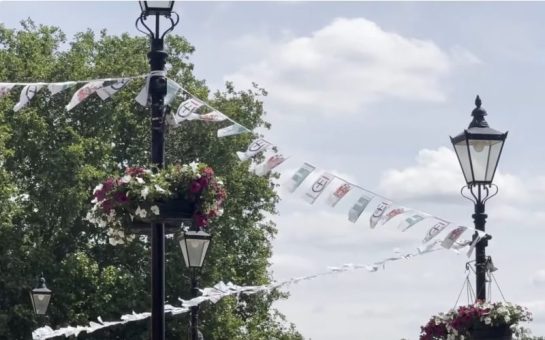The great beauty of Brexit to many advocates is the romanticism attached to Britain’s liberation from the European dream, through retaking borders and the reassertion of sovereignty.
These are high on the agenda for so-called Brexiteers, riding high on a crest of Euroscepticism and popular disaffection about migration.
The twin of Euroscepticism is a perverse nostalgia for back when Britain ruled the waves and felt more important on the world stage with its pink-coloured tyranny sprawling across a third of the world’s surface.
Now Britain isn’t the colonial behemoth it used to be, but life outside the EU could be rocky for the island on whose former empire the sun never set.
UKIP leader Nigel Farage has espoused the idea that Britain could fill a role in Europe outside the EU, Norway and Switzerland are the two countries who continue to crop up as models for this role.
The extent to which these two small but prosperous nations are models to aspire to has been discussed in some media circles but hasn’t appeared to grip the popular imagination.
This is primarily because, for all their positives, these are two very different countries from Britain and lack an aspirational element that would excite the Vote Leave campaign.
Part of Leave’s problem is promising better things when established thinking indicates a rocky economy post Brexit, the Confederation of British Industry pointed out leaving could cost up to £100 billion and more than a million jobs.
Similarly, comparing eight million Swiss and five million Norwegians to more than 65 million British people involves some convoluted maths, especially considering our dissimilar histories and our far more diverse population.
Both Norway and Switzerland operate within Europe, being component members of the European Free Trade Association and the Schengen agreement, though unlike Norway, Switzerland is not a member of the European Economic Area.
Norway and Switzerland, along with Liechtenstein and Iceland, make up the European Free Trade Association which allows them access to the single market.
This comes at a price as they must adhere to the specifications of the EEA, meaning they accept the free movement of people.
However Switzerland is outside of the EEA but bilateral trade deals allow Switzerland access to the single market.
The Swiss Franc, like the British Pound, is seen as a strong global currency despite its unpegging from the Euro in January last year.
Yet for all the talk about leaving the EU and building a new agreement the fundamental problem remains for Britain, and the countries in question – the free movement of labour.
Many on the streets and in the pubs of Britain complain about pressures of an increasing population but despite concern around immigration to Britain this wouldn’t necessarily be reversed or even halted outside the EU.
A fundamental paradox of Brexit thinking is that the UK could renegotiate its relations with the European market and access greater international trade without so much as a blip.
Market thinking, however, tends to dictate that the key to growth and prosperity is the ability to employ people more flexibly across a broad range of professions.
In Switzerland despite their vast banking sector, impressive services industry and other profitable ventures, there is still an emphasis on migration.
Nearly a quarter of the Swiss population was born outside the country and with their net migration sitting at around 100,000 last year, is proportionally far more than Britain’s.
Contrast this with talk about the much lauded ‘Australian style points system’ and the problems begin to emerge.
From a purely financial perspective the case for leaving the EU isn’t served by redressing the tricky issue of migration because these issues exist outside of Brussel’s monolithic entity.
Complaints about democracy and sovereignty are also rightly part of the agenda, with Switzerland perhaps one of the true beacons for this principle of freedom with its citizens regularly voting on issues from bridge building to deporting foreign criminals.
However, in Norway the country’s relationship with the unelected suits in Brussels is somewhat different with around three quarters of EU directives making their way into legislation in the Norwegian parliament.
The point made by the pro-Brexit crowd is that Britain would be able to be part of the European single market outside of the EU, but two problems immediately arise.
The first, is one made with remarkably clarity by John Major, is ‘self-deception to the point of delusion’ to believe that having left the EU, we would be able to waltz back in again on the same terms.
The second is its logical extension that while Switzerland and Norway exist outside the EU they still have to abide by their core tenants, the so called ‘four freedoms’, the free movement of goods, capital, services, and people.
So the bête noire of mass immigration strikes again, one can no longer be ‘in Europe’ without accepting some of the protocols and privileges of the EU.
Switzerland and Norway have no say over EU legislation and their own trading agreements, though beneficial, are built on a historic rejection of outside influence by small, fiercely proud and individual nations.
For Britain, a global power with real influence inside European decision making, a move out of the EU to start afresh is to drop from the top table of the continent’s politics and take up the place of the petulant teenager believing the grass to be greener elsewhere.
Admittedly Britain’s size and economy could give it a greater negotiating position to reform its trading position, but even Canada’s deal, the ‘Comprehensive Economic and Trade Agreement’, took six years to finalise and that omits services, one of Britain’s core strengths.
The debate may centre on Britain looking further afield for its future and we may have to, with few Eurosceptics realising how powerful a position we currently have within this imperfect but manageable organisation.
Featured picture courtesy of Celso FLORES, with thanks




